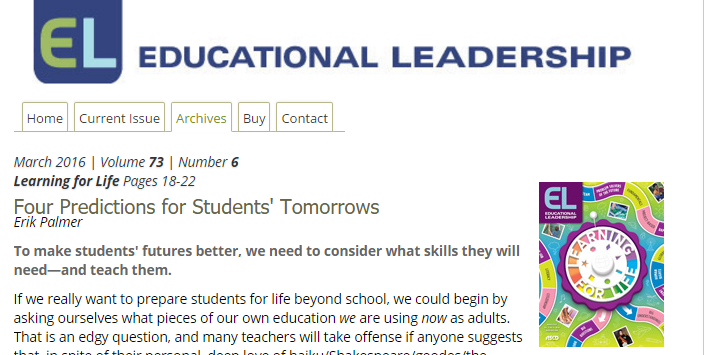 Around this time of year, coaches and mentors may hear versions of this statement as teachers begin their end of level testing and end of year activities. "Don't bother coming in, I'm testing. You won't see any teaching."
Around this time of year, coaches and mentors may hear versions of this statement as teachers begin their end of level testing and end of year activities. "Don't bother coming in, I'm testing. You won't see any teaching."
At first, we may believe it when we say it or hear it. Testing doesn't always use a lot of instructional strategies, exciting delivery instruction, or intensive management. It definitely wouldn't be what you would want to do for a professional evaluation. But, quite contrary to our thoughts on "seeing nothing..," an observer will be able to see and conclude a lot from watching a teacher administer a test.
Jim Dillon, in his blog post Voice of the Educator: Invisible Learning, talks of an experience with a teacher he was coaching. She was doing individual assessments on kindergartners at the end of the year. He stayed and watched her class for a half hour anyway. And his takeaways were big.
- Students learn from everything around them and from each other, not just from a teacher.
- Learning is not just a cognitive experience but involves emotions and the social context.
- The teacher’s role is to provide the right conditions for learning primarily by creating a safe and supportive environment.
- A strong and trusting relationship between student and teacher is the foundation of a safe environment.
- A teacher needs to learn about the interests, strengths and needs of each student in order to create the right conditions for learning (Dillon. "Invisible Learning").
Each of these components are things that are not always observed immediately--but are essential to learning taking place. If things are running smoothly during an assessment, we can tell a few things right off. The teacher has taught expectations for testing, the students know the rules and procedures for that time, and if the students are independently working--they will know the appropriate management routines for that time as well. If there are some inconsistencies in these, that will be evident as well.
So next time you hear, "I'm just testing, there's nothing to see..," reflect on that thought and see if you can identify where good teaching is still happening. You might be surprised.
Reference:
Dillon, Jim. "Voice of the Educator: Invisible Learning." Smart Blog on Education. 21 Mar 2016. Web. 11 Apr. 2016.
 Donate to and/or volunteer at the food bank
Donate to and/or volunteer at the food bank

 The end of the year for new teachers brings with it many feelings of excitement and apprehension. As mentor's working with our faculty we can help build a knowledge base by informing and reminding our teachers of the following items:
The end of the year for new teachers brings with it many feelings of excitement and apprehension. As mentor's working with our faculty we can help build a knowledge base by informing and reminding our teachers of the following items: Who amongst your colleagues was the most helpful to you?
Who amongst your colleagues was the most helpful to you? This time of year can cause stress and anxiety for teachers as they anticipate changes that will be coming in the next year. But, change isn't always a bad thing, especially if we learn to cope with it. There are various things that can be done to adjust to change and to make it an easier transition. Take these ideas into consideration:
This time of year can cause stress and anxiety for teachers as they anticipate changes that will be coming in the next year. But, change isn't always a bad thing, especially if we learn to cope with it. There are various things that can be done to adjust to change and to make it an easier transition. Take these ideas into consideration: Around this time of year, coaches and mentors may hear versions of this statement as teachers begin their end of level testing and end of year activities. "Don't bother coming in, I'm testing. You won't see any teaching."
Around this time of year, coaches and mentors may hear versions of this statement as teachers begin their end of level testing and end of year activities. "Don't bother coming in, I'm testing. You won't see any teaching."